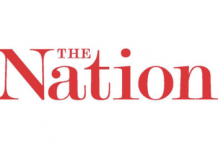The Institute for Justice and Democracy in Haiti (IJDH) and its Haiti-based partner Bureau des Avocats Internationaux (BAI) have released a report outlining recent cases of persecution of organized workers in Haiti as well as Haitian government complicity in allowing illegal attacks against, and terminations of labor activists to occur without judicial consequences. The report, titled “Haitian labor movement struggles as workers face increased anti-union persecution and wage suppression,” documents attacks and firings of union organizers by both public and private sector companies.
On January 10, 2014, the leaders of SECEdH [Union of Employees of l’EDH] held a press conference at EDH, as they had countless times over the last several years. The purpose of the January 10 press conference was to allege mismanagement and corruption at EDH. At the last minute, EDH management refused to let journalists in the building, although they had given permission for the press conference the day before. SECEdH’s leaders joined journalists on the street outside EDH’s parking lot gate to convene the press conference. EDH security guards pushed down the metal gate onto the crowd, hitting SECEdH’s treasurer in the head and knocking him unconscious. The security guards stood by while the employee lay on the ground bleeding and witnesses urged them to help. Some journalists took the injured employee to the hospital in one of their vehicles. He was released from the hospital but suffers constant pain in his head, shoulders, arms, and back from the heavy gate falling on him.
The following week, SECEdH’s executive committee, including the injured officer, received letters of termination dated January 10, 2014.
Making Haiti “open for business” was a core piece of President Michel Martelly’s election platform that has won him political and economic support from the U.S. government, despite low voter turnout and flawed elections in 2010 and 2011. Part of the Martelly administration’s strategy to attract foreign investment has been to keep wages low so that Haiti can be competitive with the global low-wage market. Haiti has the third lowest monthly wages in the apparel industry, surpassing only Cambodia and Bangladesh. This U.S.-backed “sweat shop” economic model is similar to the model in the 1970s and 1980s under former dictator Jean-Claude “Baby Doc” Duvalier.





